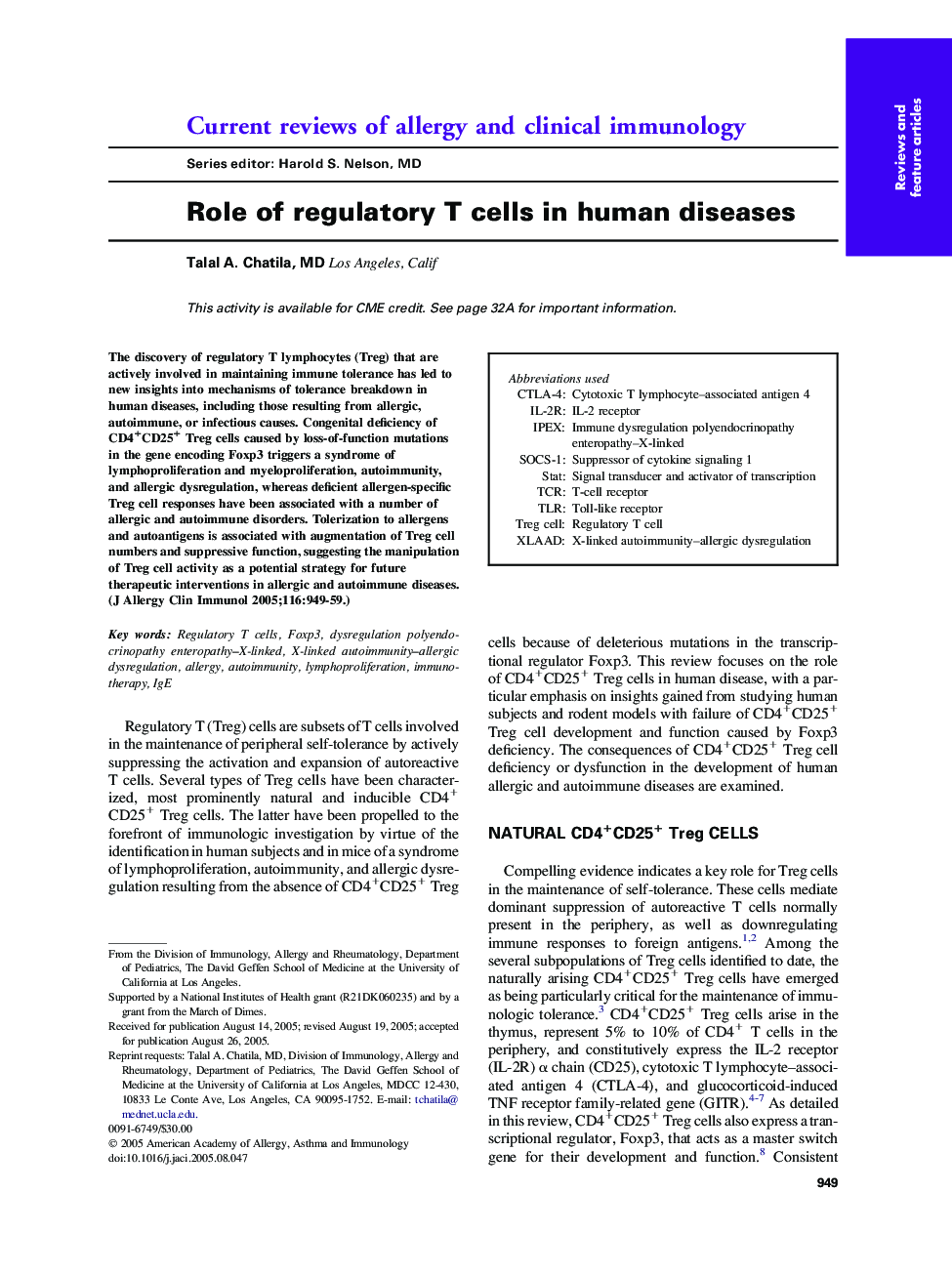| Article ID | Journal | Published Year | Pages | File Type |
|---|---|---|---|---|
| 9227057 | Journal of Allergy and Clinical Immunology | 2005 | 11 Pages |
Abstract
The discovery of regulatory T lymphocytes (Treg) that are actively involved in maintaining immune tolerance has led to new insights into mechanisms of tolerance breakdown in human diseases, including those resulting from allergic, autoimmune, or infectious causes. Congenital deficiency of CD4+CD25+ Treg cells caused by loss-of-function mutations in the gene encoding Foxp3 triggers a syndrome of lymphoproliferation and myeloproliferation, autoimmunity, and allergic dysregulation, whereas deficient allergen-specific Treg cell responses have been associated with a number of allergic and autoimmune disorders. Tolerization to allergens and autoantigens is associated with augmentation of Treg cell numbers and suppressive function, suggesting the manipulation of Treg cell activity as a potential strategy for future therapeutic interventions in allergic and autoimmune diseases.
Keywords
IgECTLA-4IPEXSOCS-1IL-2RTLRTCrFOXP3AllergySTATcytotoxic T lymphocyte–associated antigen 4immunotherapyToll-like receptorautoimmunitysuppressor of cytokine signaling 1Regulatory T cellTreg cellRegulatory T cellsLymphoproliferationSignal transducer and activator of transcriptionIL-2 receptorT-cell receptor
Related Topics
Life Sciences
Immunology and Microbiology
Immunology
Authors
Talal A. MD,
